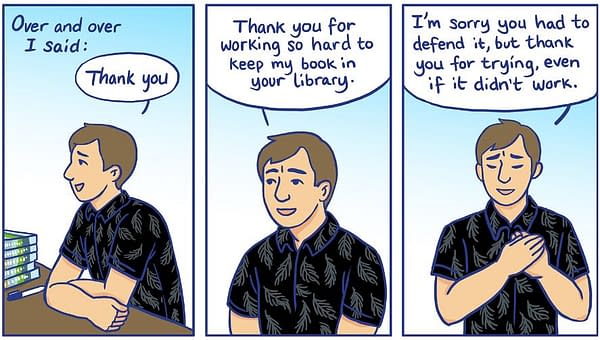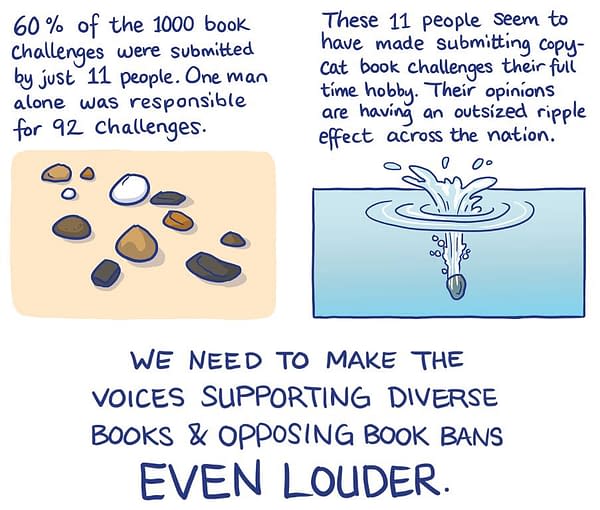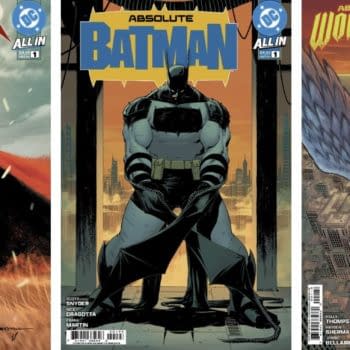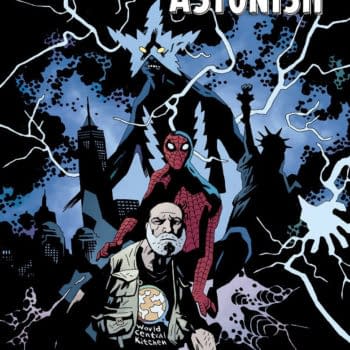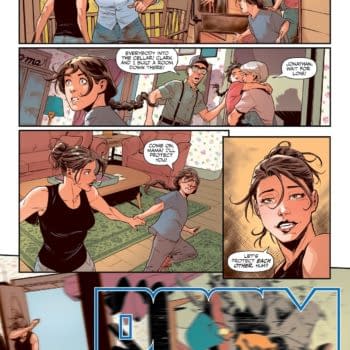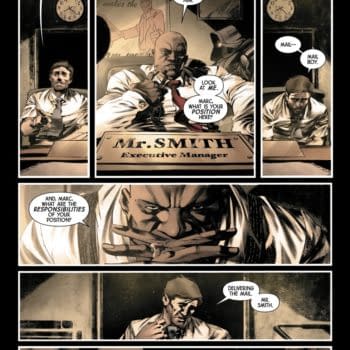Posted in: Comics, Comics Publishers, Current News, Oni Press | Tagged: gender queer, graphic novel, Maia Kobabe
When Maine Police Were Asked To Investigate Gender Queer
After multiple complaints, the Cumberland Police Department found that the Greely High School library was not in violation of Maine state laws
Bleeding Cool has spent months covering, repeatedly, the rise of New Puritan book bans in American libraries, and the politics that surround them, that focus on books involving sexual orientation, gender identity and race relations. And more often than not, the graphic novel Gender Queer by Maia Kobabe and published by Oni Press is the declared bullseye of many of them and has been used by politicians to both win local elections – and also to lose them. But ahead of the next electoral cycle in American politics, it seems that the outrage mob has moved on from Gender Queer by Maia Kobabe to Heartstopper by Alice Oseman, possibly driven by the greater prominence a book adapted to a successful Netflix series can bring, just as the second season has dropped. But there are still headlines in Gender Queer to come, just maybe not the ones the complainants expected.
After multiple complaints were filed after a parental/teacher meeting a month ago, the Cumberland Police Department found that the Greely High School library was not in violation of Maine state laws against dissemination of obscene matter to minors for providing access to the book Gender Queer.
The Maine Wire reports that Cumberland Police Chief Charles Rumsey spoke with Cumberland County Assistant District Attorney Glenn Barnes, who informed Rumsey that based on his review of the relevant statutes, his office "would not be prosecuting any case related to this matter." Rumsey then judged that this case did not fit the Maine statute against disseminating obscene materials to minors, Title 17 section 2911. "The definition for 'obscene matter' is a three-part definition, requiring that all three parts be satisfied for material to be considered obscene," Rumsey wrote. "One portion of the definition which I do not believe is satisfied is the requirement that the matter, 'considered as a whole, appeals to the prurient interest.'" The entirety of the book, as previously noted, deals with the efforts of the character or characters to understand their gender identity," he continued. "'Prurient,' as defined by the Oxford Dictionary (accessed online), means 'having or encouraging an excessive interest in sexual matters.'"
America's largest teachers' union, the National Education Association, included Gender Queer on its Great Summer Reads for Educators reading list recommendations. However, Fox News' Joshua Q. Nelson chose to report this as teachers that were encouraged to include the book on summer reading lists given to children. The Fox News feed read "Gender Queer on NEA Summer Reading List for Kids" during The Faulkner Focus. Julie Banderas was quoted on screen as saying that "The country's largest teachers union's sending educators a recommended list of 11 books for students' summer reading, and one of those books is actually titled 'Gender Queer" while host Tomi Lahren described Gender Queer as "soft porn" and that the NEA "recommended teachers include the graphic gay sex novel 'Gender Queer' on their student's summer reading lists."
Attempts to find purchase outside of the USA have also stalled. Activist Bernard Gaynor applied to Australia's Classification Review Board earlier this year to review the classification of Gender Queer, stating before, "The book is highly pornographic. And that alone is enough to have it removed from the library, regardless of what people might think about the book's content."
Australia's Classification Review Board has rejected calls to restrict access in schools, finding the content is appropriate for its intended audience. The classification is unrestricted, with a consumer advice of "M – not recommended for readers under 15 years" and that "the content of the publication is justified in context, is appropriate for its intended audience of people who are interested in the author or interested in the subjects of gender identity and asexuality, and has a positive tone and character as well as many layers of positive messaging". The review received more than 500 submissions both for and against the book, delaying their a decision. The Guardian discovered with a FOI enquiry that "those in favour of keeping the book unclassified include librarians, academics, psychologists and the LGBTQ+ community" and quoted certain submissions such as "Sexuality and gender are obviously important parts of young people's lives and diverse models of healthy adulthood play an important role in destigmatising and normalising identity formation" and "It is low impact in its depiction of sex and sexuality, while highly relevant to a subsection of the 15+ audience who may benefit from its gentle depiction of gender non-normative identity formation." While others, stating they came from parents, noted that the book was "brainwashing" and included a flyer complaining about "the LGBTQ+ agenda" which included "paedophilia, necrophilia and bestiality", none of which appears in the book.
And comics journalism publication The Nib concluded its decade of publishing with a short comic by Maia Kobabe about eir journey creating the most banned book in America, as well as covering the rise in school and library book challenges, rising from 223 in 2020 to 2,571 in 2022, with 41% of challenges involved books with LGBTQ themes and 40 percent% with lead POC characters, as well as library access being restricted to under 18-year-olds, with librarians being fired and libraries being closed down over such issues. With some other startling statistics as well.


